Fish - Interview
by Paul Waller
published: 24 / 3 / 2013
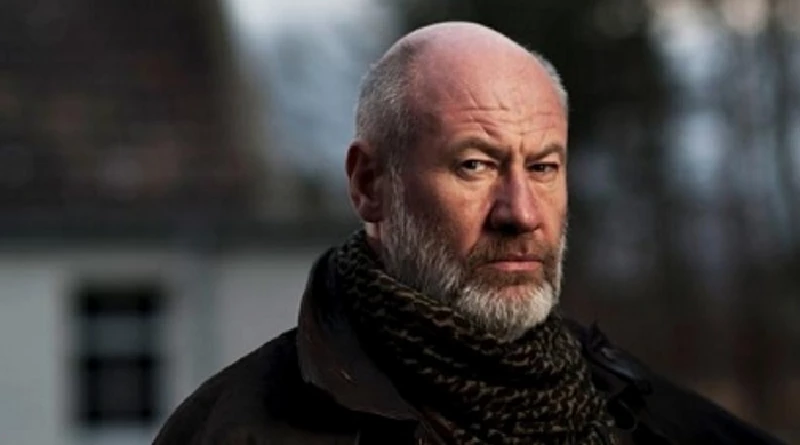
intro
Paul Waller speaks to former Marillion front man Fish about his years in his former group, forthcoming album 'Feast of Consequences' and touring again after a long absence
Born Derek William Dick, Fish has since the very early 1980s brought his unique lyrics and vocals to many a progressive rock classic. His career has flourished both in the years he spent with Marillion and since 1989 when he embarked on his adventurous and vast solo career. This momentum halted in 2007 during the release of his fine ‘13th Star’ album when his life dismantled after a series of disastrous relationships and career-threatening throat operations. This month we join Fish on the phone from Scotland. We talk to him about the years in between his last release, and what is happening with the yet-to-be-released new album ‘Feast of Consequences’. We also focus on the Marillion years, and just how the man prepares and executes his live show. PB: My discovery of your music was quite different than many others I expect. Although I was aware of Marillion and the huge hit single ‘Kayleigh’, I didn’t listen to your music until I received the ‘Bouillabaisse’ compilation double CD as a Christmas present from a friend in 2005. He was annoyed at me for never giving you a chance. After hearing it I was hooked and started to pick up your back catalogue. F: Well, that’s nice to know. It’s the one thing I kind of hold faith in, and in these days especially I like to think the whole word of mouth thing still exists and it can it still move people. PB: How difficult is it to compile those things? You have to keep in mind lifelong fans and then people like myself who don’t know your stuff. It has to be tricky. F: I think that is why you put the best ofs together. When I go to a new label I tend to launch with a new best of because it seems to make the most sense and yes, the whole idea is to capture those people that might think, “I know ‘Kayleigh’ and it’s the right price. It’s got nice packaging.” Then they go away and think, “Right, I want to try this album and then that album.” That is what it’s all about. But it is hard putting them together. The ‘Bouillabaisse’ thing was a little bit easier because I nominated the ‘Balladeer’ and ‘Rocketeer’ thing where one album was just the ballads and the other was just the rock and heavy duty songs. It did bring some people into the fold, but again it never did as much as we hoped it would. Things have changed so much. The whole idea of selling albums, moving albums and promoting albums has just completely changed. There’s a whole different process now. PB: I think it’s strange that in this day and age with YouTube, Spotify and iTunes just a click away that a compilation album could still affect anyone, let alone myself. F: I think as well, in all honesty that if you look at ‘Misplaced Childhood’, which sold 3,000,000 albums or something and what I am selling now which is around 50,000 units, that is a big gap of people that are happy with the old albums but they just won’t get into the new stuff. So compilations are important in that regard because those kinds of fans are not necessarily part of the download generation. They are used to having physical products, and it is getting harder and harder to put the physical products in their hands what with the demise of HMV etc., and the whole of the independent retail scenario going out of the window. It’s harder to catch browsers, you know? But you just adopt it and I don’t get bitter about it. That’s just the way it is but then again I run my own independent label which has just me on it, so it’s very much a cottage industry now. With Marillion we would get something like fourteen pence per CD on a full priced CD, and when you put that into context you find that you are shifting a lot of albums, but you are not making very much whereas now you can make a lot more depending on how much effort you want to put into promotion. But then again with promotion what do you do? Buy a page in ‘Classic Rock’, get a page in ‘Prog Rock’ or whatever and aim it at your demographic? What else can you do? Most people skim through adverts. They are blind to them. PB: Do you see a lot of young kids in the shows? F: There are some, I’m not going to lie to you and say a large proportion of my audience is under 20 because no. It’s not. If I look at my Facebook demographics, it’s all the 35-50 age group. But then again when I got a bit older I picked up on artists like Marvin Gaye and Otis Redding that I was never exposed to when I was a kid, but then there maybe the argument that because I am a musician in a world of musicians that I would have a duty to examine what they did because of the legends that they were. I know about my daughter’s generation and my daughter is 22. Her favourite bands are Led Zeppelin, Fleetwood Mac, Pink Floyd and Free, and a lot of her friends have discovered what I’m doing. They are aware of tracks like ‘Kayleigh’ of course, but they have also been switched on to some of the other stuff. So that’s all very well. It’s nice to have people into your music, but you still need to sell that music to make it work and to keep your mortgage paid. Selling this music is becoming harder and harder, and again I am lucky that the people that make up a huge part of my fan base are people that like tactile items. That has been the spine of my entire existence. PB: Well, you have adapted incredibly well with technology. Your fan base is always kept up to date with goings on, often with daily updates in fact. It keeps people incredibly loyal, but do you think because of this you have lost a little mystique, a little mystery about yourself that fans often love about their heroes? F: Yeah, but I don’t think there was much of a mystery about myself in the first place; I was never a Bowie of a Ferry or anything like that. I’m the sort of guy that goes to see Hibs [Hibernian football club-Ed] play on a Saturday, and I am far more comfortable in a pub than I am in a nightclub. My character has been one that is always open. My lyrics have always contained an openness about my life. Sometimes I am a bit too open for my own good perhaps, so I wouldn’t say that I am particularly a man of mystery. So when the internet really hit I enjoyed the communication between fans. In fact that was one of the problems I had when I was in Marillion in those latter days. We were becoming more and more distant from the people. When you play a 3000/4000 capacity hall you can still have a tangible contact with the audience. So if somebody shouts something from half way up the hall, people can hear it and they can hear my answer, but when you go up to a 15,000 and somebody shouts out and they are 20 yards away from me then the guy at the back can’t hear a damn thing he said, so he can only hear the response. So suddenly a certain dislocation went on, which wasn’t helped by the fact that the light show and the production was such that I would walk onto the stage and spend around 70% of the gig blinded by a super-trouper. I couldn’t actually see and get an awareness of the depth of the crowd, to feel the back of the hall. Adding to that I was in a band that with all due respect, well, they were quite happy to run straight through the sets, run through the same solos and the same songs every show. For me it became monotonous, and added to that I was coming offstage into a backstage area that was populated by people that I really didn’t want to know. We were the ones that were buying the champagne and the beer. We were the ones paying for it. A lot of the people there three years before hated our guts but because we were selling papers and magazines we were in favour ,and we had to press the flesh of people who owned huge record store chains, and at the end of the day they were making more money off the albums than we were. Add to even that, we had gone up to that division, that level where we had managers, tour managers, assistant tour managers, tour accountants, assistant tour accountants etc. etc., that there was an entire tribe moving with us. By the end we only managed to get the manager down to 20%! Towards the last days for me in the band I just thought, “Why am I doing this? It’s just crazy.” The phrase I always use to describe it is that fame is great as it will get you the best table in the restaurant, but the waiters will always expect more tips. I got so sick of it. When I went on to ‘Vigil in a Wilderness of Mirrors’ (Fish’s 1990 debut solo record-Ed], there were certain pangs to get the record up to that level and it was for a while, but then I had the big legal wrangle with EMI after my first solo album when I went to Polydor. It was then that a huge undermining of the foundations went on, so I had to change and it took me a long time to adjust to where I am now and I am quite happy with my lot. I never wanted a Maserati, or have been somebody who would drool over having a villa in the south of France or something like that. I have my organic vegetable garden and I am quite happy pottering about in that, going to football and going for wanders down the beach, I am happy with that. I am sitting here in a house right now, and if I look out the window I can see snow-capped hills that are just three miles away that I can wonder around in the summer. To me that is cool. I find celebrity a bit uncomfortable; I’ve been through the heavy intrusions of privacy like when just after my very short second marriage I was subjected to a 4/5 page article in ‘The News of the World in Scotland’. I was very uncomfortable with that. PB: What about today when you speak to the press? F: I have got absolutely nothing to hide. Obviously I do have a private life and I don’t talk about my family that much… Saying that, my daughter, she’s a model now and goes under the name Tara Nowy. She is getting quite successful now and is currently auditioning for a big Sky TV ‘X- Factor’ type thing to do with models and she is no stranger to celebrity. She has been brought up on it. She’s very cool. I remember one time we went out to see Queen in Holland, and we were sitting in the hotel after. There was Brian May, Roger Taylor and I chatting away with some of the other Queen guys, and my daughter was holding court, and at the time she was only about 14 years old, so she’s not daunted by celebrity or phased by famous people. For me, when I was at the Prog Awards last year I found myself talking to some people that were heroes of mine like Peter Hamill, and I was even sitting on a table with Tony Banks and Mike Rutherford. I would never have believed as a teenager that a) I would be at such a thing as an award ceremony that celebrated progressive rock and b) that we would all be sitting there together at a table. It was quite surreal, I expected somebody to wake me up and tell me that I had my O Levels to do tomorrow. When people ask me if I miss it [the celebrity status], I say not really. I still play big gigs. We have a gig that we are organising at the moment that I have found really exciting, and that is at Mogadishu Airport. I have friends of mine that were in the army and are working with the UN training people, and one of them phoned me up and asked if I fancy a gig there as there is a bar that can take 500 people, and that that the flights will be taken care of and I said, “Yeah. Why not?” We’re not going to make any money from it, but I want to do it and be able to put it on a T-shirt and say we played Mogadishu. How else would I ever get a chance to do that? That’s the sort of thing we never did with Marillion, I’ve been to Bosnia and Kosovo with the army doing gigs, and they were the most enjoyable gigs on the most exhilarating tour I ever remember doing. I don’t think of playing the Ahoy in Rotterdam in front of 18,000 people as anywhere near that category. PB: It’s odd you should say that as I think you are one of those rare frontmen that can connect with an audience whether you are playing a small hall or a big stadium. The way you communicate with the audience it’s as if they are in your front room. F: That’s just the way that I was brought up, that’s one of the things I abhor about these ‘X- Factor’ or ‘The Voice’ types of reality stars. You can take a monkey into a studio and make a recording if you teach it enough tricks, but that doesn’t mean they are going to be able to hold the centre of a stage. It’s really strange, I think I was born a decade too late. A lot of my peers have told me that if I had been around in the 70s… well, you know. The Marillion I joined in January 1981 went out and played pubs and clubs. We played in front of 30 or 60 people some nights. That’s how you learn your trade. You play in front of people that are not interested in what you’re doing. It was a struggle, but we had to try and pull people in to examine what we were doing. So I learned through technical failures with the band when things went wrong on stage. Being young we didn’t have that back up so when things went wrong I had to deal with it, and I think having that apprenticeship has stood me well over time. I feel comfortable on most stages. It’s all to do with projection, my self-confidence and my ability to wield some kind of control, but it’s like working with tigers sometimes. If you are not careful, they will rip your arse off (Laughs). I have seen some guys on stage that are big names and the way they are with the audience makes me think, “Why are you doing this? Don’t even bother talking!” PB: Keeping on the subject of communication with fans, it was no secret that you had problems with your voice recently. F: I had two vocal operations, one in 2008 and the other in 2009. With the first one there was a lot of dark shadows and questions hanging over me pre-op and I didn’t even know if I was going to have a voice when I came out of it, and the second came really quick on the heels of the last one. It was like taking two hard Muhammed Ali punches straight to the face. PB: I take it this was the main reason behind the six year gap between the new album coming out and ‘13th Star’ back in 2007? F: Yeah, in 2007 we did ‘13th Star’, and it was a great album, and we worked real hard on it but at the time that we were recording the album I was going through the blender. I was about to get married, and then the woman basically walked out on me just before the wedding. This was just before that album, so then I went on that tour, and by 2008 for every five gigs I was doing there was one great gig and two average gigs and two dreadful ones; it was all to do with the voice. It got to the point where at 9 ‘o clock at night I was dreading having to go on stage because I didn’t know what would happen. I could never tell. I had a cyst in my throat so some days it wouldn’t be as rampant as others; it would deflate in a way but I didn’t know that. It got mentioned in the press and I would get stressed out. I came very close to walking away from everything at the end of that tour. Then I had the op and went out in 2009, and then I got married. That lasted all of six months. Three days after my second operation she disappeared as well, so I had really taken a serious kicking. I couldn’t sing during 2009. I only did five shows, and there was no way I was going to get anything written at that time because of all of my problems. For me the first six months of 2010 every morning was full of I Love You’s and every night was like a mortar attack. I’ve never known a more emotionally confusing time in my life. At that point I decided to go out on an acoustic tour, trying to re-find my voice, to find out how to deal with a crowd again and get my confidence back. I had to re-examine exactly what I do and it started to work. I really enjoyed going out with the acoustic format. We were playing to everything from 200 people a night to doing 500/600 a night in parts of Poland and Germany, and everything seemed to balance out for me. We managed to get to play in places that we would never have been able to play in with the electrical band format. We ran it like a guerrilla style operation and slimmed it right down, so we could get into areas that we could never had done with the “This is what we must have” kind of attitude. That finished in 2011 and I wanted to distance myself from that darkness that I was in. I didn’t want to write about a shitty marriage or writing about the “WOMAN”. PB: So no classic break up album? F: Exactly. So I wanted to put some space between me and that time. So then we got to 2012 and Foss Patterson [pianos and keyboards-Ed] and Frank Usher [guitars-Ed], who had been on the acoustic tour with me began to talk about writing this album. We did some festivals and stuff but just had no new material coming through. So I just thought I had to bring a writer in. Before that I was really getting down about it and questioning whether I could even make another album. Now, I had a major fall out with Steve Vantsis [Fish’s long-time collaborator-Ed] in 2008. It was over a lot of little things though, just business crap, and we had been friends for such a long time that when he came along to a couple of gigs on the acoustic tour it felt right to shake hands and make up. It was obvious that we had both changed over the years, I had got rid of the demons that were with me in 2008 and so had he, you know? So when Steve came up last year in the first couple of weeks he was there we had managed to get the skeletons of six songs together, so that spurred it on for us and he was getting involved in the writing. But it just wasn’t coming together quickly enough for me. PB: Yeah, the last I heard was that the new album was going to be called ‘Feast of Consequences’, and it would be released either late 2012 or early 2013. F: I just wasn’t ready; there was no point in just rushing in and doing this, I would never want to put anything out half cocked. If I am going to put out an album that would be my first in five years than another six months isn’t going to matter. Financially I am aware I have to get something together and put it out as the log pile is beginning to get thin and is bark now, but at the same time I am not going to put out shit. I’ve never done that. I’ve never put out an album just to make money; it has to be a statement, a piece of creativity that I am proud of and I think that ‘Feast of Consequences’ falls into that. I am really pleased with the lyrics. PB: Lyrics are so important to fans of yours and one of your simplest and most effective lyrics was in my mind ‘Sugar Mice’ from the ‘Clutching At Straws’ LP you did with Marillion in 1987. F: That was the single that went missing; it’s a fucking great song even if I say so myself. To me it’s like country and western. In 1987 when we started to put ‘Clutching At Straws’ together that was when creatively the band started to fall apart in as far as if you listen to the album it’s made up of lots of bits that we joined together. Some stuff like ‘Incommunicado’, ‘White Russian’ and ‘The Last Straw’, they are songs that have recognisable song constructions. We got ourselves a little bit of swagger and became a lot rockier, and that was the direction that I wanted to go in. So if you look at a song like ‘Sugar Mice’ or a song like ‘Incommunicado’ or even ‘The Last Straw’, you can easily see the link through to the ‘Vigil’ solo album. The best version we ever had of that was actually a demo that we made in Maidenhead and the tapes got lost or damaged. It was one of those moments where we were just playing together and everything fell in to place. I love playing it because we can play about with it on the stage, that middle section… you can jam and put that Van Morrison jazz scat vocal on top of it. You can play about with it and bend the dynamic of it which is a wonderful thing; it’s a really great song. Lyrically it was inspired by going to Milwaukee, and I think we were supporting Rush, and we ended up in this shitty Holiday Inn in the middle of the projects there, and there were some skag dealers outside in the car park, and it was snowing and cold. My Samsonite suitcase just exploded in the elevator, and I got up to my room, and it had an aertex ceiling that had scrawled on it stuff like “Kenny Loves Linda”, and all there was to do was to watch wrestling on the TV. It was terrible. So I went to the bar and there were these sad bastards there, and a Trivial Pursuit machine that had just sex questions on it, and an old jukebox that contained nothing but ballads, I also spent around $70 on the phone having an argument with my girlfriend at the time so I was gutted. This was meant to be Milwaukee, and that was the vision that kind of inspired that song. That vision of someone leaving Edinburgh for the promise of somewhere like Milwaukee and why is he running away? Is it from his family or has he really gone over there to find a better life and bring them over? There is a very melancholic Scottishness to it. PB: You have just posted new lyrics to a song called ‘All Loved Up’ on Facebook. Is this track going to be included on the record? F: Yeah, it is. Now we have eleven songs. I have eight completed lyrics. There is only one though that I have no lyrics for, and that’s called ‘The Layman’. There is a song called ‘Perfume River’, and I finished that two weeks ago. For some reason I just wasn’t happy with it. It didn’t feel good and I wasn’t comfortable with it. The lyric fitted well and it worked with the melody, but something just felt like it was just not right. So I texted Steve a few days ago, and I said, “I think it needs another verse because the story isn’t complete. It’s not rounded out properly. There is no act three in it”. And so I just sat down with it and basically it was just four lines, four lines that didn’t sound right, so I deconstructed it by taking all the words out and putting them back together in a different way and then low and behold… Bang! It all made sense. “The fetid smell of stale revolutions” was the line that did it. That was the one line in the verse that just made complete sense of the chorus. That is how I work. I self-edit so much and I love working with words. Years ago with ‘Perfume River’ I may have just let that go, and allowed it there or written another verse, and it would have been flabby over three verses. So in the last month or so now that I am coming to the end game with all these new lyrics. I’m loving doing the final bits of polishing and tidying up before I put them out there on the exhibition floor. I do love writing and that book that has been held up over the last three years [Fish’s long overdue autobiography-Ed] just has to be managed next year. People always come up to me ,and say you have to write this book, and explain all the lyrics or write a biography or compile all your blog entries together into one big volume. I’m just like, “For fuck sake” (Laughs). I mean I am under no real pressure. One of the problems with living where I do on a farm in East Lothian, two miles out of the town and on my own is that sometimes getting the discipline together is hard. It’s all too easy to switch YouTube on, and spend two or three hours just watching drivel or kidding yourself into thinking you are doing research (Laughs). PB: Finally you are going to be doing a tour in May. Are you excited to be getting back out on the road? F: I am very daunted by the tour, We are going back to the old formula. It’s just like in the old days when you wrote the songs, and you put them into production rehearsals. Back in ‘83, ’84, and even ’85, we took new songs out on the road and played them live, and this is what I’m doing on this May tour. I am in the situation where the album is pretty much finished, and the band starts production rehearsals next week with all the new material. Then after a week off we go into full on rehearsals, and then go and play twelve shows where we are planning on playing roughly six new songs a night. I’d never be arrogant enough to think that we should play the full brand new album, and you should have to sit there and listen to it, that’d feel like you’re in a study group. The fans are paying ticket money to be entertained; you have to provide old material as well, especially now that ‘Script for a Jester’s Tear’ (Marillion’s 1983 debut album-Ed) has its thirtieth anniversary. We have a good balance of well-known songs and up songs and songs the punters love, so this upcoming tour experience should be fulfilling for both parties. PB: Thank you.
Band Links:-
http://fishheads.club/https://www.facebook.com/derek.dick
http://fish-thecompany.com/
https://www.facebook.com/MarillionOfficial
Picture Gallery:-
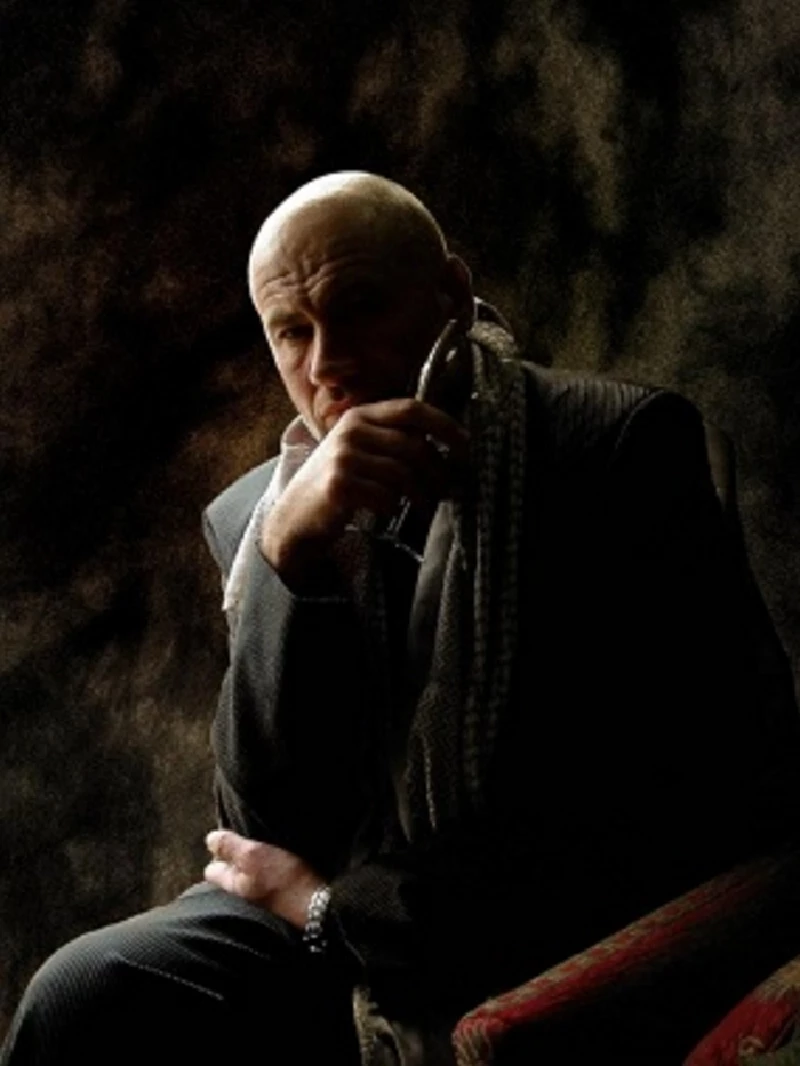
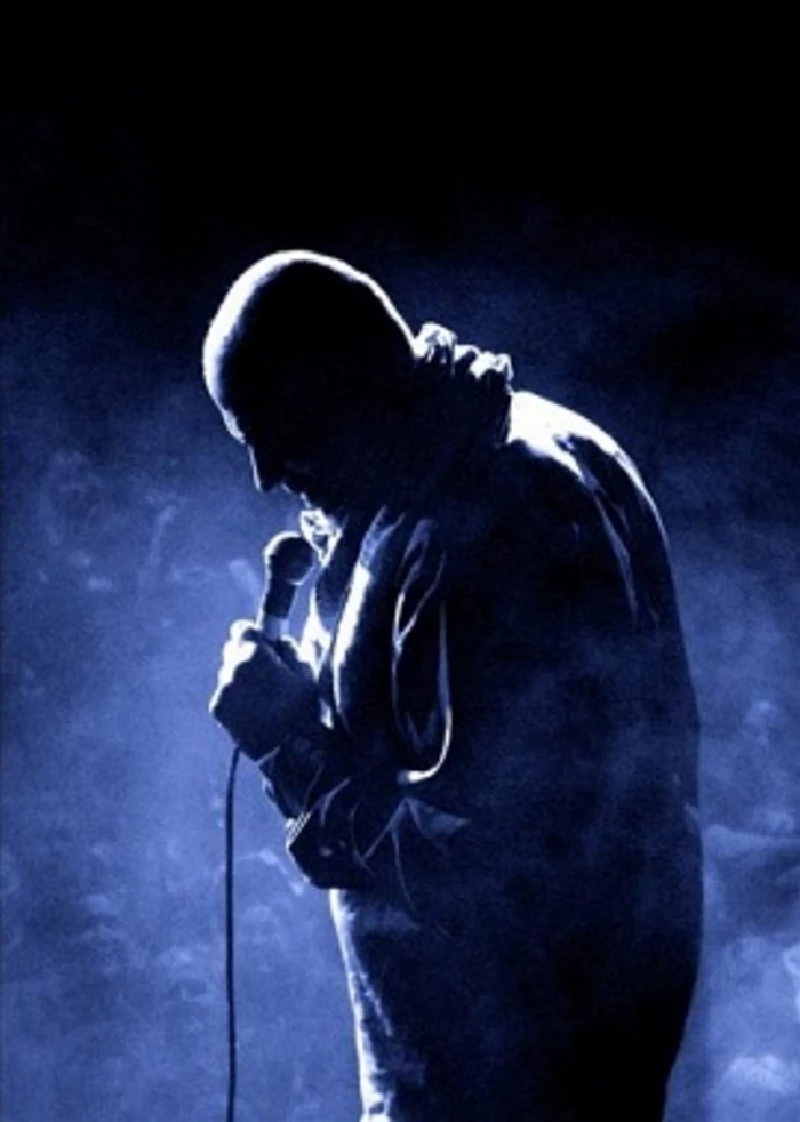
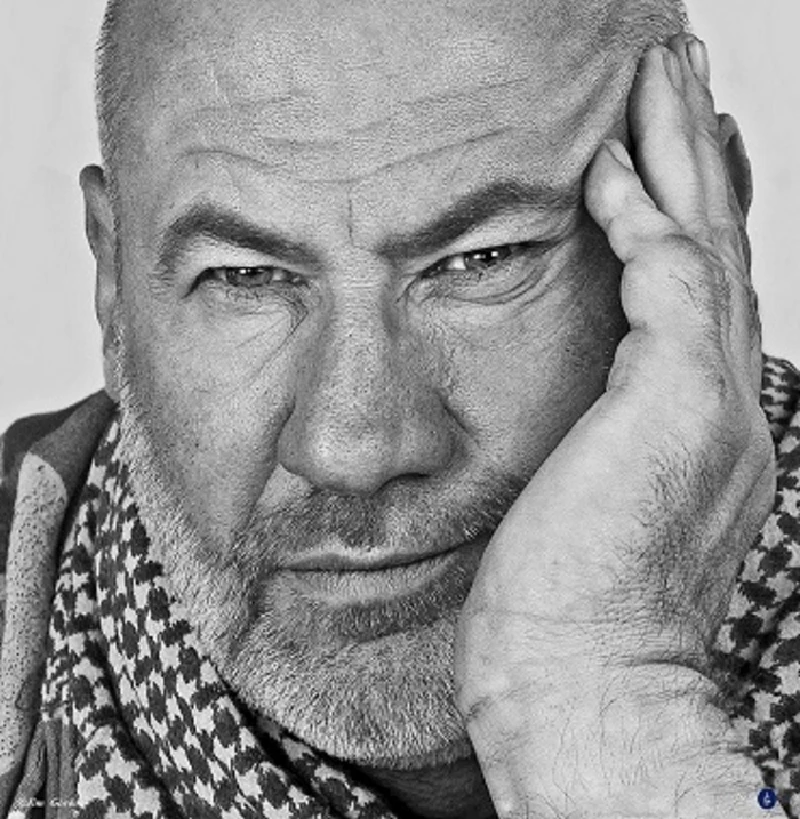
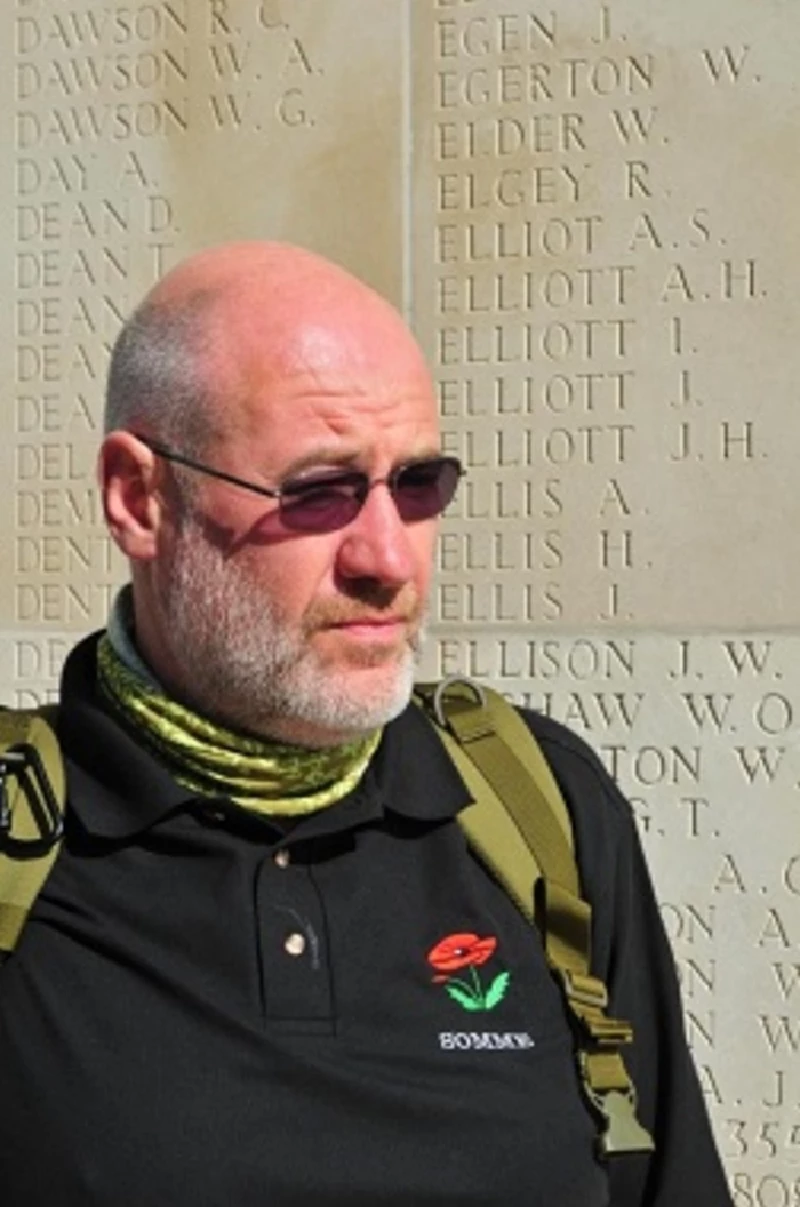
interviews |
|
Interview (2015) |
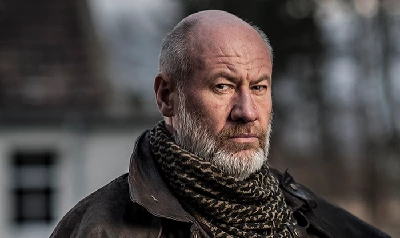
|
| Ex-Marillion front man Fish talks to John Clarkson about his recent announcement that he will retire from music to concentrate instead on a new career as a writer, and his plans for a final album and to reissue most of his solo catalogue in three CD remastered editions |
| Interview (2010) |
photography |
|
Photoscapes (2018) |
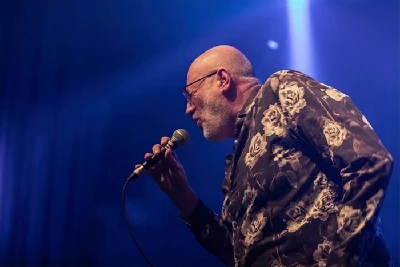
|
| Andrew Twambley photographs former Marillion front man Fish at a show at The Ritz in Manchester. |
most viewed articles
current edition
John McKay - InterviewRobert Forster - Interview
Cathode Ray - Interview
When Rivers Meet - Waterfront, Norwich, 29/5/2025
Spear Of Destiny - Interview
Fiona Hutchings - Interview
Carl Ewens - David Bowie 1964 to 1982 On Track: Every Album, Every Song
Chris Wade - Interview
Claudia Brucken - Interview
Shrag - Huw Stephens Session 08.12.10 and Marc Riley Session 21.03.12
previous editions
Heavenly - P.U.N.K. Girl EPManic Street Preachers - (Gig of a Lifetime) Millennium Stadium, Cardiff, December 1999
Boomtown Rats - Ten Songs That Made Me Love....
Barrie Barlow - Interview
Oasis - Oasis, Earl's Court, London, 1995
Trudie Myerscough-Harris - Interview
Beautiful South - Ten Songs That Made Me Love...
Paul Clerehugh - Interview
Pixies - Ten Songs That Made Me Love...
Allan Clarke - Interview
most viewed reviews
current edition
Peter Doolan - I Am a Tree Rooted to the Spot and a Snake Moves Around Me,in a CircleVinny Peculiar - Things Too Long Left Unsaid
Vultures - Liz Kershaw Session 16.06.88
Garbage - Let All That We Imagine Be The Light
John McKay - Sixes and #Sevens
Lapsley - I'm a Hurricane, I'm a Woman In Love
HAIM - I Quit
Little Simz - Lotus
Billy Nomates - Metalhorse
Pulp - More
related articles |
|
Billy Bibby and the Wry Smiles: Interview (2016 |
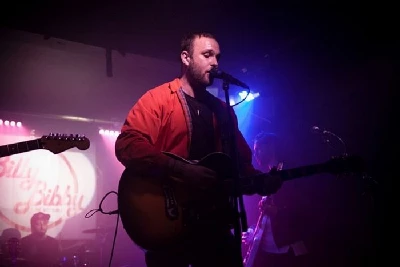
|
| Harry Sheriff chats to Billy Bibby and Matt Thomas of Billy Bibby and the Wry Smiles about touring and what direction the band wants to take |
| Filthy Tongues: Interview (2016) |
| Billy Bibby and the Wry Smiles: Interview (2016) |
Pennyblackmusic Regular Contributors
Adrian Janes
Amanda J. Window
Andrew Twambley
Anthony Dhanendran
Benjamin Howarth
Cila Warncke
Daniel Cressey
Darren Aston
Dastardly
Dave Goodwin
Denzil Watson
Dominic B. Simpson
Eoghan Lyng
Fiona Hutchings
Harry Sherriff
Helen Tipping
Jamie Rowland
John Clarkson
Julie Cruickshank
Kimberly Bright
Lisa Torem
Maarten Schiethart